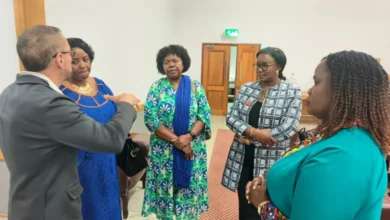Zimbabwe Delegation to Benchmark Benin’s Glo-Djigbé Industrial Zone for Agricultural Transformation

A high-level Zimbabwean delegation will visit Benin’s Glo-Djigbé Industrial Zone (GDIZ) from 11 to 16 May 2025 as part of the country’s Export Agriculture on Food Security Initiative (EAFSI), in a bold move to gain practical insights from one of Africa’s most successful agro-industrial models.
Led by Deputy Minister of Lands, Agriculture, Fisheries, Water and Rural Development, Vangelis Haritatos, the delegation includes senior officials from key economic institutions such as the Mutapa Investment Fund, the Cotton Company of Zimbabwe (Cottco), the Zimbabwe Investment and Development Agency (ZIDA), and the Ministries of Industry and Commerce, Finance, and Economic Development.
Learning from Proven Models
The visit is part of Zimbabwe’s broader efforts to accelerate agricultural industrialisation, boost exports, and improve national food security. The Ministry emphasised the importance of this benchmarking mission in a concept note, highlighting GDIZ as a proven model of agro-industrial transformation that aligns well with Zimbabwe’s goals.
“GDIZ, successfully developed by ARISE and supported by Afreximbank, represents a working template of industrial agriculture anchored by government facilitation and private sector partnerships,” the Ministry stated.
The delegation is expected to engage directly with GDIZ managers and relevant Beninese government ministries to understand best practices in operational efficiency, public-private collaboration, and supply chain integration.
Gokwe Cotton Seed Project at the Centre
At the heart of Zimbabwe’s EAFSI drive is the Gokwe Cotton Seed Processing Project, a flagship initiative designed to integrate cotton, sunflower, and soya bean value chains. The project targets a processing throughput of 500 metric tonnes per day, a benchmark considered critical for commercial viability and long-term sustainability.
Initially envisioned as a cotton-exclusive project, production volumes fell short of the required processing target. As a result, sunflower and soya bean have been added to the value chain mix. According to the Ministry:
- Cotton alone would reach the 500MT/day threshold by year seven.
- Cotton and sunflower combined would meet the target by year six.
- Adding soya bean allows the target to be achieved in year one.
This integrated approach not only ensures quicker project viability but also spreads production risks and enhances food and oilseed output for both domestic consumption and export.
Broader Goals of the Export Agriculture Initiative
EAFSI aims to transform Zimbabwe’s agriculture sector from subsistence-based to export-oriented, with projects spanning:
- The Beef Value Chain Project
- Village Business Units
- Africa Trade and Distribution Company development
Through these initiatives, the Government seeks to create employment, strengthen food systems, and earn foreign exchange by tapping into regional and international markets.
“The goal is to increase agricultural exports while improving food security at household and national levels,” the Ministry said.
The EAFSI strategy is supported by key partners including ARISE and Afreximbank, institutions instrumental in the success of GDIZ and well-positioned to back Zimbabwe’s efforts with funding, expertise, and market access.
Agriculture at the Core of Economic Strategy
Agriculture remains a cornerstone of Zimbabwe’s economy, contributing significantly to employment, raw material supply, and exports. Projects like the Gokwe Cotton Seed Processing Plant are designed not only to industrialise agriculture but also to drive rural development, enhance productivity, and improve livelihoods across farming communities.
By undertaking this benchmarking visit, Zimbabwe aims to minimise implementation risks and fast-track delivery of its agro-industrial goals through insights gained from GDIZ—a zone that has successfully transformed Benin’s agricultural landscape into a competitive export engine.
The GDIZ visit represents a strategic step forward in Zimbabwe’s agricultural transformation journey. With implementation lessons, operational strategies, and partnership models in hand, the delegation is expected to bring back actionable insights that could reshape the country’s value addition and export strategy.
If Zimbabwe successfully adapts and applies these lessons, it could unlock significant economic benefits while positioning itself as a leading agro-industrial hub in Southern Africa.




